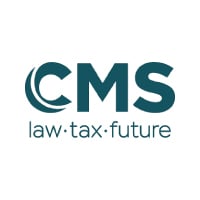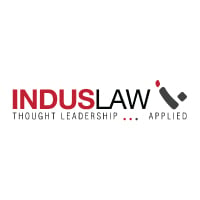

Legal director | ISS






Ajay D’Cruz
Legal director | ISS
Team size: 12
Based on your experience, what is the key to collaborating successfully with business partners?
I often ask myself this question, “being a legal business partner how can I demonstrate value to the company?” Benchmarking ourselves- only creates more value!
To be the business partner of choice, I follow the K.I.S.S. principle, Keep It Short and Simple, the DRY principle (Don’t Repeat Yourself) which aims at reducing repetitive work and getting it right the first time. The opposite of this principle is the WET principle: Waste Everyone’s Time or We Enjoy Typing. We are one team and should not be isolated entities within an organisation. This helps risk identification, mitigation and crisis management at an early stage. Engaging with stakeholders regularly by providing training and clear reporting of legal issues has mitigated major risks. Ethical leadership, honesty and transparency is personally important to me and has proven to be essential for trust building and overall seamless integration into company’s strategy, driving compliance and business success.
How do you motivate and manage the other members of your legal team well?
As a general counsel and leader, I have learnt that attracting, retaining and developing key talent is extremely important for achieving better results.
The team is encouraged to spend time with cross functional teams and other business enablers to encourage cross learning, knowledge sharing and idea generation. I encourage job rotation/role swapping which has proven to be immensely useful to members of the team as well as to the company. Regular feedback sessions with the team members, coaching and mentoring is an important aspect of very leader which needs to be allotted sufficient time on a regular basis. I connect on a regular basis with the internal stakeholders and encourage regular feedback to strengthen our service level to our internal customers. Tasks requiring similar skills are grouped together and further optimised by putting the right person for the job. We have regular trainings, and I encourage all my team members to participate in internal training programmes including our legal team knowledge sharing sessions. In addition, I encourage my team members to pursue a formal legal education. This helps us as a team to be updated with the latest laws, industry trends and best practices. Knowing that it is important for our stakeholders to understand us and vice versa, we conduct sessions on educating stakeholders on important topics. These sessions are found to be very useful.
Are the effects of AI on the legal world overplayed, or underplayed?
Being a ‘Tech-Geek’, I follow technology very closely. The effects of Artificial Intelligence (AI) in the legal world are significant but often underplayed due to a combination of factors including cost constraints, technical know-how among lawyers, traditional ways of doing things, ethical concerns and continuous advancement in AI makes it difficult to keep pace.
Automation of repetitive tasks like document review, contract analysis and due diligence by reducing the time and cost involved but the scale at which AI can optimise these tasks is often underestimated or unknown, leading to underutilisation. AI tools can conduct legal research faster and more accurately than human researchers, identifying relevant precedents and statutes in a fraction of the time but even today there is hesitation to fully adopt AI-driven research due to concerns about accuracy.
AI can predict case outcomes based on historical data, helping lawyers strategise better and make informed decisions but these tools are not fully leveraged due to lack of familiarity or skepticism. AI can be effectively used in arbitration and mediation to provide unbiased decisions or facilitate negotiations but not fully leveraged due to unfamiliarity and traditional practices. The integration of AI in legal practice raises questions about accountability, confidentiality and the ethical use of AI and we need to keep ourselves aware of developments in these areas in the days to come. Building awareness, supportive regulatory frameworks can ensure that the legal world fully harnesses AI’s capabilities while addressing the challenges it presents.